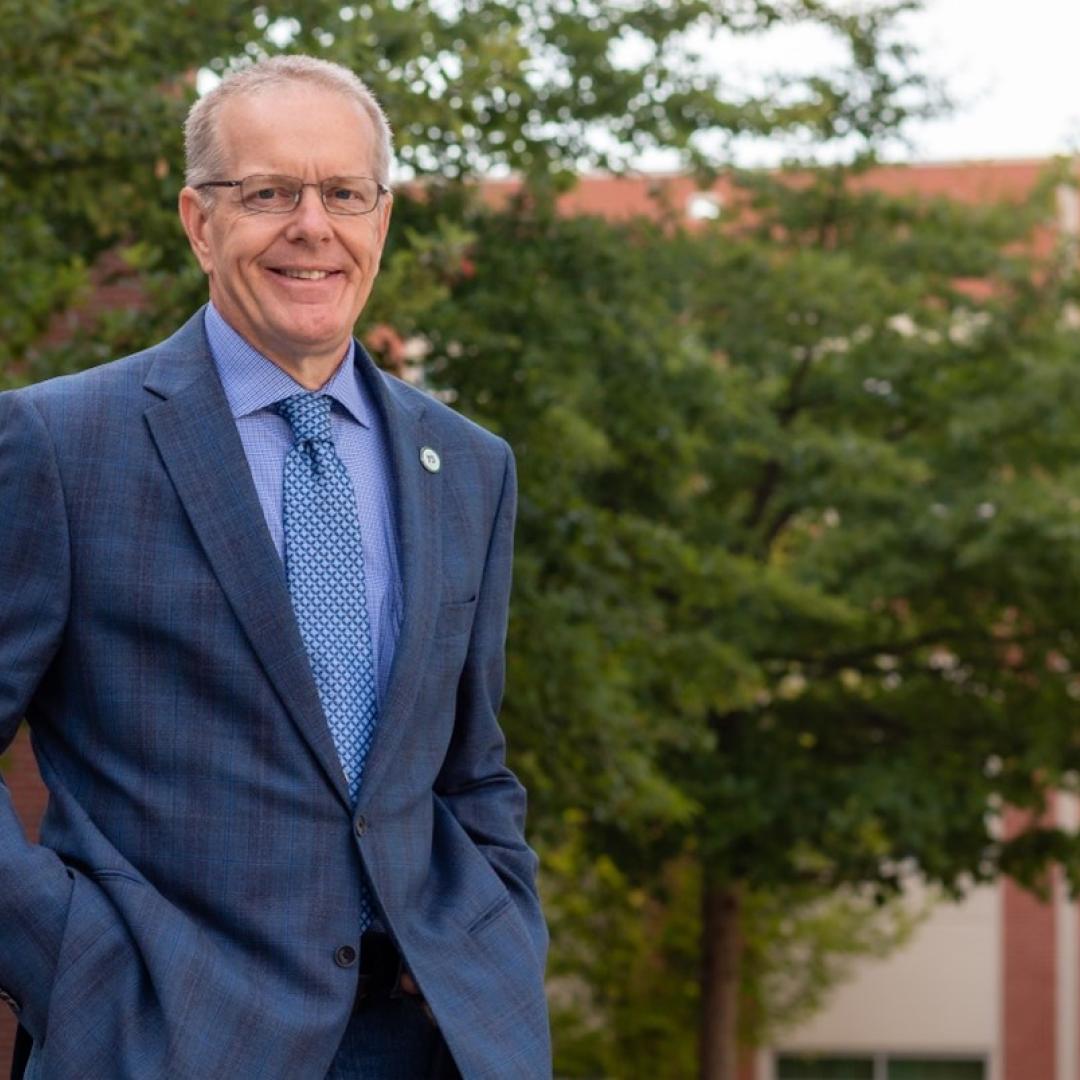
Filter News
Area of Research
- Biology and Environment (23)
- Biology and Soft Matter (1)
- Clean Energy (35)
- Electricity and Smart Grid (1)
- Functional Materials for Energy (1)
- Fusion and Fission (2)
- Fusion Energy (1)
- Materials (12)
- Materials for Computing (1)
- National Security (3)
- Neutron Science (3)
- Nuclear Science and Technology (5)
- Supercomputing (32)
- Transportation Systems (1)
News Topics
- (-) Decarbonization (79)
- (-) Frontier (42)
- (-) Molten Salt (8)
- (-) Renewable Energy (2)
- 3-D Printing/Advanced Manufacturing (121)
- Advanced Reactors (34)
- Artificial Intelligence (91)
- Big Data (53)
- Bioenergy (91)
- Biology (98)
- Biomedical (58)
- Biotechnology (22)
- Buildings (57)
- Chemical Sciences (63)
- Clean Water (29)
- Climate Change (99)
- Composites (26)
- Computer Science (187)
- Coronavirus (46)
- Critical Materials (26)
- Cybersecurity (35)
- Education (4)
- Element Discovery (1)
- Emergency (2)
- Energy Storage (108)
- Environment (194)
- Exascale Computing (37)
- Fossil Energy (5)
- Fusion (54)
- Grid (62)
- High-Performance Computing (84)
- Hydropower (11)
- Irradiation (3)
- Isotopes (53)
- ITER (7)
- Machine Learning (47)
- Materials (144)
- Materials Science (140)
- Mathematics (7)
- Mercury (12)
- Microelectronics (3)
- Microscopy (51)
- Nanotechnology (60)
- National Security (61)
- Net Zero (13)
- Neutron Science (131)
- Nuclear Energy (108)
- Partnerships (44)
- Physics (61)
- Polymers (33)
- Quantum Computing (34)
- Quantum Science (69)
- Security (24)
- Simulation (47)
- Software (1)
- Space Exploration (25)
- Statistics (3)
- Summit (57)
- Sustainable Energy (125)
- Transformational Challenge Reactor (7)
- Transportation (97)
Media Contacts
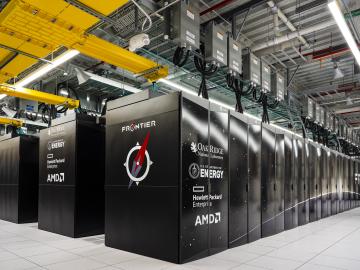
With the world’s first exascale supercomputing system now open to full user operations, research teams are harnessing Frontier’s power and speed to tackle some of the most challenging problems in modern science.
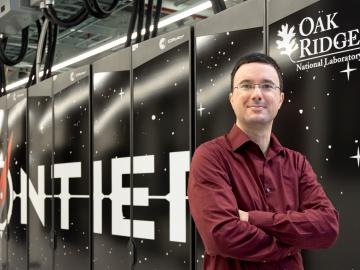
As renewable sources of energy such as wind and sun power are being increasingly added to the country’s electrical grid, old-fashioned nuclear energy is also being primed for a resurgence.
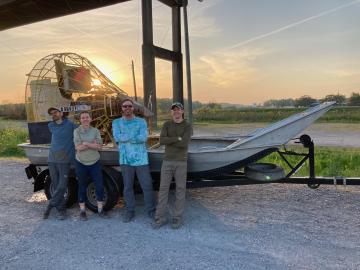
As a biogeochemist at ORNL, Matthew Berens studies how carbon, nutrients and minerals move through water and soil. In this firsthand account, Berens describes recent fieldwork in Louisiana with colleagues.
Oak Ridge National Laboratory scientists led the development of a supply chain model revealing the optimal places to site farms, biorefineries, pipelines and other infrastructure for sustainable aviation fuel production.

A trio of new and improved cosmological simulation codes was unveiled in a series of presentations at the annual April Meeting of the American Physical Society in Minneapolis.
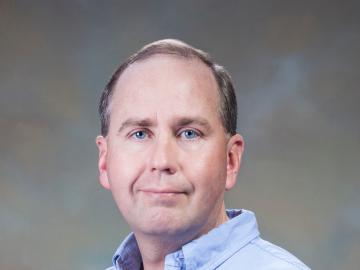
ORNL has named Michael Parks director of the Computer Science and Mathematics Division within ORNL’s Computing and Computational Sciences Directorate. His hiring became effective March 13.
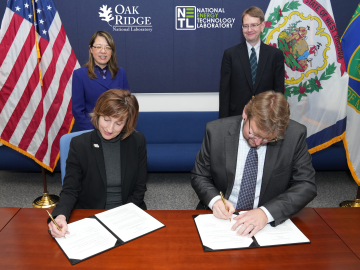
ORNL is teaming with the National Energy Technology Laboratory to jointly explore a range of technology innovations for carbon management and strategies for economic development and sustainable energy transitions in the Appalachian region.
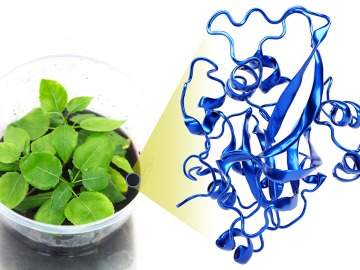
ORNL researchers have identified specific proteins and amino acids that could control bioenergy plants’ ability to identify beneficial microbes that can enhance plant growth and storage of carbon in soils.
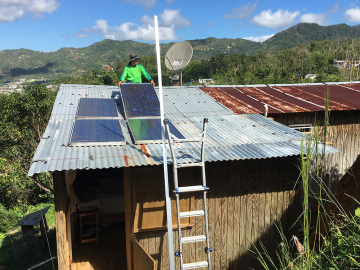
ORNL researchers Ben Ollis and Max Ferrari will be in Adjuntas to join the March 18 festivities but also to hammer out more technical details of their contribution to the project: making the microgrids even more reliable.
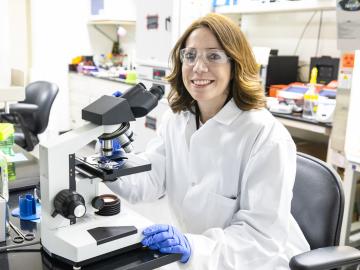
Joanna Tannous has found the perfect organism to study to satisfy her deeply curious nature, her skills in biochemistry and genetics, and a drive to create solutions for a better world. The organism is a poorly understood life form that greatly influences its environment and is unique enough to deserve its own biological kingdom: fungi.


